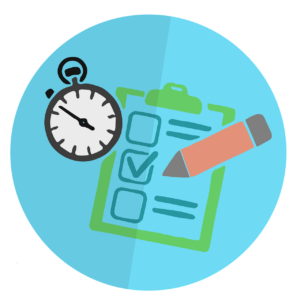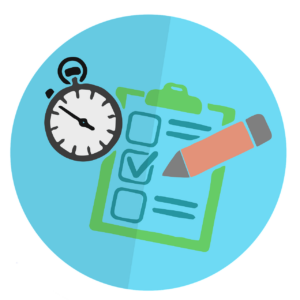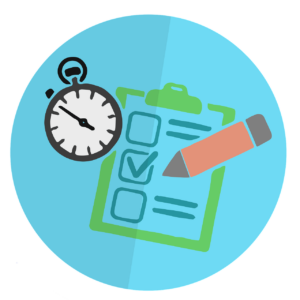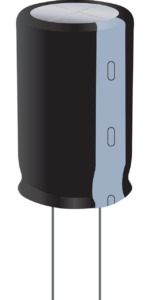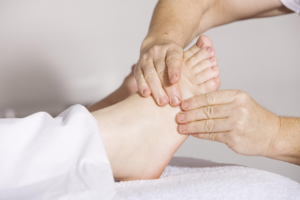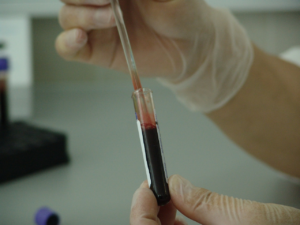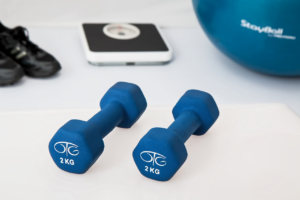Are you considering a career in nursing? One of the first steps you will need to take is to pass a nursing entrance exam. This test is designed to assess your knowledge and skills in areas such as math, science, and reading comprehension, and is a crucial part of the admissions process for nursing programs.
In this article, we will provide you with an overview of the nursing entrance exam, including the topics covered, tips for preparation, and test-taking strategies to help you succeed on exam day.
As you prepare for the nursing entrance exam, it is important to familiarize yourself with the test structure and content. The exam typically consists of multiple-choice questions covering a range of subjects, including biology, chemistry, anatomy, physiology, and math.
In addition, the exam may test your reading comprehension and critical thinking skills, as well as your ability to understand and interpret charts, graphs, and other data. By understanding the test structure and content, you can better prepare yourself for the exam and improve your chances of success.
Key Takeaways
- Nursing Entrance Exam assesses knowledge in math, science, and reading comprehension.
- Exam covers subjects such as biology, chemistry, anatomy, physiology, and math.
- Effective time management and elimination of wrong answers are crucial skills.
- Exam is a significant part of the admissions process and evaluates understanding of basic scientific concepts and principles.
Overview of Nursing Entrance Exam
You’re probably wondering what the nursing entrance exam entails – well, let me give you an overview.
The nursing entrance exam is a requirement for admission to nursing programs. It can be a challenging exam, but with the right preparation, you can pass with flying colors.
The exam is designed to test your knowledge in different areas such as math, science, and language skills. It’s important to note that each nursing program has its own set of requirements, so it’s best to check with the school you’re interested in to see what specific topics will be covered on the exam.
The admission process for nursing programs can be competitive, with many applicants vying for limited spots. This is why performing well on the nursing entrance exam is crucial.
In addition to the exam, nursing programs may also require other criteria such as a certain GPA, letters of recommendation, and a personal statement. It’s important to stay organized and on top of all the application requirements to increase your chances of being accepted into a nursing program.
Remember, the nursing entrance exam is just one part of the admission process, but it’s a significant one that you should take seriously.
Topics Covered in the Exam
It’s helpful to know what subjects are included in the nursing entrance exam content when preparing for the test. The exam is designed to evaluate your knowledge in various areas that are important in the nursing profession. Here are the topics covered in the test format:
-
Science: This section covers topics such as biology, chemistry, anatomy, and physiology. You’ll be tested on your understanding of basic scientific concepts and principles related to the human body.
-
Math: This section assesses your skills in basic math concepts such as fractions, decimals, percentages, and algebra. You’ll be required to perform calculations related to drug dosages, medical measurements, and other nursing-related calculations.
-
Language: This section evaluates your proficiency in the English language. You’ll be tested on your ability to read, write, and comprehend written and verbal communication related to the nursing profession. This includes medical terminology, patient charts, and nursing procedures.
Knowing the nursing entrance exam content and test format can help you prepare better for the exam. Use these topics as a guide when studying and make sure you have a good understanding of each subject. With proper preparation, you can increase your chances of getting a good score and pursuing a career in nursing.
Tips for Exam Preparation
Get a head start on acing the nursing entrance exam by creating a study schedule that works for you. This can include reviewing flashcards, practicing math problems, and immersing yourself in medical terminologies. By breaking down the material into manageable chunks and dedicating specific times to studying each day, you’ll be able to retain more information and feel more confident come exam day.
In addition to effective study techniques, it’s important to address any exam anxiety you may have. Take deep breaths, practice mindfulness, and visualize yourself succeeding. Remember that you’ve put in the time and effort to prepare, and trust in your own abilities.
Don’t forget to get plenty of rest and stay hydrated in the days leading up to the exam. With the right mindset and preparation, you can conquer the nursing entrance exam and take the first step towards a rewarding career in healthcare.
Test-Taking Strategies
You can improve your performance on the nursing entrance exam by following some test-taking strategies.
Effective time management is crucial during the exam, so make sure to pace yourself and allocate enough time for each section.
Additionally, reading comprehension and the ability to eliminate wrong answers are key skills that can help you increase your score.
Time Management
Managing your time effectively during the nursing entrance exam is crucial to achieving success and avoiding stress. You need to have effective planning and prioritizing skills to ensure that you can complete all the sections within the given time frame. Time management is a significant factor that determines your performance in the exam. Here are some strategies that you can use to manage your time effectively during the nursing entrance exam:
| Task | Time Allotted |
|---|---|
| Reading Comprehension | 40 minutes |
| Mathematics | 45 minutes |
| Science | 60 minutes |
| English Language | 30 minutes |
| Critical Thinking | 30 minutes |
Firstly, you need to read the instructions carefully before starting the exam. This will give you an idea of how much time you will have for each section. Secondly, create a study plan that includes the amount of time you will need to prepare for each section. This will help you prioritize your tasks and allocate your time efficiently. Thirdly, avoid spending too much time on one section. If you are unable to answer a question, skip it and move on to the next one. You can always come back to it later if you have time left. Lastly, keep track of time by using a watch or timer. This will help you stay on track and avoid running out of time. By following these strategies, you can manage your time effectively and achieve success in the nursing entrance exam.
Time management is an essential factor in achieving success in the nursing entrance exam. Effective planning and prioritizing skills will help you allocate your time efficiently and complete all the sections within the given time frame. By following the strategies mentioned above, you can stay on track, avoid stress, and achieve your desired score on the exam. Remember, practice makes perfect, so make sure to practice these strategies during your preparation for the exam.
Reading Comprehension
Now that you’ve learned about time management for the nursing entrance exam, it’s time to focus on another important aspect – reading comprehension. This section tests your ability to understand and analyze written information, which is crucial for any aspiring nurse.
To excel in this section, you need to develop your critical thinking skills and improve your vocabulary. You will be presented with passages related to healthcare, and you will need to read them carefully and answer questions based on your understanding of the material.
To do this, you need to be able to identify key information, make inferences, and draw conclusions. Moreover, the exam will test your vocabulary development, so you need to be familiar with medical terminology and be able to understand the meanings of complex words.
By practicing your reading comprehension skills, you can improve your ability to understand healthcare-related material, which will be crucial for your nursing career.
Eliminating Wrong Answers
By eliminating incorrect options, you can boost your chances of getting the right answer on the reading comprehension section of the nursing entrance exam. Guessing techniques can be helpful, but it’s essential to eliminate incorrect answers first before taking a guess. This approach allows you to narrow down your choices and increase the likelihood of selecting the correct answer.
One common mistake test-takers make on the reading comprehension section is selecting answers without reading the entire passage. This approach can lead to incorrect answers since the questions are designed to test your understanding of the passage as a whole. Taking the time to read the entire passage and eliminating incorrect answers can help you avoid this mistake and increase your chances of getting the right answer.
Remember, taking the time to eliminate incorrect answers is a crucial step towards acing the reading comprehension section of the nursing entrance exam.
What to Expect on Exam Day
When you arrive on exam day, you can expect to take the test at a specific location for a certain amount of time. You’ll need to bring required identification and materials, such as your admission ticket and valid photo ID.
After you complete the exam, you’ll receive your score and results within a certain timeframe.
Exam Location and Duration
The nursing entrance exam’s location and duration are crucial factors for you to consider, as they can greatly impact your performance and overall experience. Exam logistics, such as test center requirements, should be researched and understood beforehand to avoid any complications on exam day.
Make sure to check the address of the testing center and plan your transportation accordingly. Arrive at least 30 minutes early to allow time for check-in procedures and to calm your nerves before the exam begins.
The duration of the exam can also affect your performance. The nursing entrance exam usually takes around 3-4 hours to complete, so make sure to take breaks when needed and bring snacks and water to stay energized.
It’s important to pace yourself and manage your time effectively during the exam to ensure you have enough time to answer all the questions. By being prepared and aware of the exam location and duration, you can feel more confident and focused on test day.
Required Identification and Materials
Don’t forget to bring your ID and necessary materials, like pencils and calculators, to the nursing entrance exam. Identification requirements are crucial to ensure that the right person is taking the test.
Make sure to bring a valid government-issued ID, such as a passport or driver’s license, to prove your identity. The name on your ID should match the one on your test registration form. If your name has changed, bring legal documentation to prove the change.
In addition, exam materials needed may vary depending on the specific requirements of your nursing entrance exam. Some exams may allow only certain types of calculators, while others may require you to bring your own pencils or other supplies. Check with the testing center ahead of time to understand what materials are allowed and what you need to bring.
It’s better to be over-prepared than to be caught without the necessary materials on exam day. Remember, arriving with the required identification and materials will help you start the nursing entrance exam on the right foot.
Exam Scoring and Results
Scoring and receiving your results from the nursing entrance exam can be a nerve-wracking experience, but it’s an essential step in the application process.
The exam is typically scored on a scale of 0-100, with 100 being the highest possible score. The scoring breakdown usually includes sections for math, reading comprehension, and science. It’s important to note that the minimum passing score can vary depending on the institution or program.
Once you receive your scores, you’ll also receive percentile rankings. Percentile rankings show where you stand compared to other test-takers. For example, if you scored in the 80th percentile, it means that you scored higher than 80% of other test-takers.
This can give you an idea of how well you performed compared to others and can help you determine areas where you need to improve. Keep in mind that while your scores are important, they’re just one aspect of your application. Admissions committees also consider other factors such as your GPA, work experience, and extracurricular activities.
Next Steps After the Exam
Once you complete the nursing entrance exam, you may be wondering what your next steps should be. The first thing you should do is wait for your exam results. Depending on your score, you may have different options available to you. If you did well on the exam, you may have more job prospects and career opportunities. If you didn’t do as well as you hoped, don’t worry. There are still options available to you, such as retaking the exam or seeking additional education or training.
To help you navigate your options, use the following table as a guide:
| Exam Results | Next Steps |
|---|---|
| High score | Explore job prospects and career opportunities. Consider applying to nursing programs that require a higher score. |
| Average score | Consider retaking the exam or seeking additional education or training to improve your chances. |
| Low score | Retake the exam or consider seeking additional education or training before retaking the exam. |
Remember that the nursing field is constantly evolving, and there are always opportunities for growth and advancement. Don’t be afraid to explore different options and seek out resources to help you achieve your goals. With hard work and dedication, you can succeed in this rewarding and fulfilling profession.
Frequently Asked Questions
What is the passing score for the nursing entrance exam?
To answer your question about the passing score for the nursing entrance exam, it’s important to first understand the scoring criteria.
Each nursing program may have different standards for what they consider a passing score, so it’s best to research the specific program you’re applying to.
However, in general, most nursing entrance exams are scored on a scale of 0-100, with 60-70 being considered a passing score.
Preparation strategies can vary, but it’s important to review the content covered on the exam, practice answering sample questions, and consider seeking out study materials or tutoring if needed.
Remember to also take care of your physical and mental health leading up to the exam, as this can impact your performance.
How long is the nursing entrance exam?
The nursing entrance exam typically lasts around three to four hours and is made up of multiple-choice questions. The exam format may vary depending on the specific test provider, but it generally covers topics such as math, science, and verbal skills.
You’ll need to arrive early on test day to check in and receive instructions from the proctor. It’s important to pace yourself during the exam to ensure you have enough time to answer each question, but don’t rush through it either.
Remember to read each question carefully and double-check your answers before moving on to the next section. With a little preparation and focus, you can successfully complete the nursing entrance exam and move on to the next step in your career.
Are there any breaks provided during the exam?
During the nursing entrance exam, you might be wondering if there are any breaks provided. Unfortunately, the answer to this question depends on the test center policies, and you won’t know for sure until you arrive for your exam.
However, it’s important to keep in mind that the exam duration is typically several hours long, so it’s essential to be mentally and physically prepared for the duration of the test. If you need to take a break during the exam, it’s best to discuss your options with the test center administrator beforehand.
Some centers may allow you to take a break, while others may not. Ultimately, it’s important to know the test center policies in advance, so you can prepare accordingly and perform your best on your nursing entrance exam.
Can I bring a calculator to the exam?
Yes, you’re allowed to bring a calculator to the nursing entrance exam. However, there are some regulations regarding its usage.
The calculator must be a simple, non-programmable, and non-scientific calculator. You can’t bring any other electronic devices or communication devices to the exam.
The use of calculators is only allowed in certain sections of the exam, and the test instructions will provide you with further information on where and when you can use the calculator.
Make sure to follow these regulations to avoid any penalties or disqualifications during the exam.
How often can I retake the nursing entrance exam?
You may be wondering how often you can retake the nursing entrance exam. Retaking limitations vary depending on the institution administering the exam, so it’s important to check with them to know the specifics.
However, it’s common for there to be a waiting period before you can retake the exam, usually a few months. While you wait, you can use this time to prepare and improve your skills and knowledge.
Preparation strategies can include reviewing study materials, practicing test-taking strategies, and seeking guidance from a tutor or mentor. Remember, the nursing entrance exam is an important step in your nursing education, so take the time to prepare and approach it with confidence.
Conclusion
Congratulations! You’ve gained a better understanding of the nursing entrance exam and what it entails.
By reviewing the topics covered in the exam and utilizing the tips and test-taking strategies provided, you can feel more confident and prepared on exam day. Remember to stay focused and calm during the exam, and don’t forget to take breaks when needed.
After the exam, take time to reflect on your performance and identify areas where you may need to improve. With dedication and hard work, you can achieve your goal of becoming a nurse and making a positive impact in the healthcare field.
Best of luck on your journey!

















